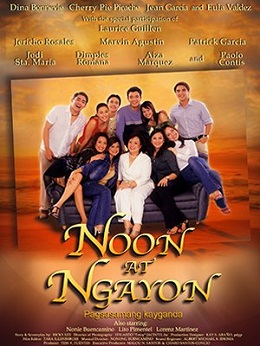
Ronald Allan Kelley Poe, known professionally as Fernando Poe Jr., and often referred to by his initials FPJ, was a Filipino actor, film director, producer, screenwriter, and politician. His long and successful career as an action star earned him the nickname "Da King". He also wrote, directed, and produced several of the films he starred in—under the pseudonyms Ronwaldo Reyes and D'Lanor.

Quiapo is a district of the city of Manila, in the National Capital Region of the Philippines. Referred to as the “Old Downtown of Manila", the district’s most famous landmark is Quiapo Church, a minor basilica enshrining the Black Nazarene image processed every January by millions of devotees. Quiapo is also know as a place for bargain hunting.

The Varsitarian is the official student publication of the University of Santo Tomas (UST). Founded in January 1928 by a group of students led by Jose Villa Panganiban, it is one of the first student newspapers in the Philippines. It is published fortnightly. The lampoon issue is called The Vuisitarian. Tomas U. Santos, the mascot of The Varsitarian, is a Thomasian who represents the students of the campus. He is usually seen accompanied by a talking, and quite cynical, T-square.

Angelica Panganiban-Homan is a Filipino-American actress, model, TV host and comedian.
Jericho Vibar Rosales, also known as Echo, is a Filipino actor and singer.
The 14th Metro Manila Film Festival was held in 1988.

Tanging Yaman is a 2000 Filipino religious-family drama film produced by Star Cinema. Directed by Laurice Guillen, the film garnered several awards, especially at the 2000 Metro Manila Film Festival, including Best Picture, Best Actor, and Best Actress.

Noon at Ngayon: Pagsasamang Kay Ganda is a 2003 Filipino drama film directed by Marilou Diaz-Abaya and written by Ricky Lee. Noon At Ngayon tells the story of four friends who reunite after many years of separation. The film examines how dreams are shattered and changed through the years because of life's troubles and how these people reconciled with their pasts to lead better lives in the present. The film is a sequel to Diaz-Abaya's 1982 film, Moral and was released on August 13, 2003, under Star Cinema.
Juan Marasigan Feleo, known professionally as Johnny Delgado, was a Filipino television and movie actor, comedian, and writer. He is best known for his television work on the TV gag show Goin' Bananas. Other roles include the films Kakabakaba Ka Ba? and Tanging Yaman. The latter won him the FAMAS Award and the Metro Manila Film Festival Award for Best Actor in 2000.
Laurice Ilagan Guillen-Feleo is a Filipino actress, film and television director, and college professor.
Mila is a 2001 Filipino drama film directed by Joel C. Lamangan with its screenplay written by Ricky Lee that was based upon the life story of Anita Pamintuan. It stars Maricel Soriano, Piolo Pascual, Princess Punzalan, Cherry Pie Picache, Kaye Abad, Serena Dalrymple, Jiro Manio and Angelica Panganiban. It was produced and released by Star Cinema as part of their 8th anniversary presentation.
Magandang Hatinggabi is a 1998 Filipino comedy horror anthology film directed by Laurenti Dyogi, and released by Star Cinema. The film is divided into three episodes, each consisting of a different set of stories, characters, and settings. The episodes are presented as urban legends as told by the Fatman to a group of young people.

Akin Pa Rin ang Bukas is a 2013 Philippine television drama series broadcast by GMA Network. Directed by Laurice Guillen, it stars Lovi Poe. It premiered on September 9, 2013, on the network's Telebabad line up replacing Mundo Mo'y Akin. The series concluded on December 27, 2013, with a total of 79 episodes. It was replaced by Rhodora X in its timeslot.

José María Vélez Zaragoza was a Filipino architect.

Kung Mangarap Ka't Magising, released overseas as Moments in a Stolen Dream, is a 1977 Filipino coming-of-age romantic drama film directed by Mike de Leon, with a screenplay by de Leon and Rey Santayana. Set in Baguio, the film stars Christopher de Leon and Hilda Koronel as two young people whose friendship blooms into a complicated romance.
Catalina Guillen Feleo-Gervasutti, better known as Ina Feleo, is a Filipino actress, figure skater, dancer, and writer. She rose to fame for playing the main antagonist role as Odessa in romantic-horror-drama on GMA Network, Hanggang Makita Kang Muli.
Cheryl Ramos-Cosio is a Filipina actress. She is known for her association with the Philippine New Wave Cinema and starring in Jerrold Tarog's Mangatyanan (2009), Senior Year (2010) and Goyo: Ang Batang Heneral (2018), and Brillante Mendoza's Captive (2012). She also starred in Prima Donnas as Darcy. In 2022, Ramos portrays the role of Dra. Katie Enriquez in the Philippine television medical drama, Abot-Kamay na Pangarap.
Magkano ang Iyong Dangal? is a 1988 Filipino romantic drama film directed by Laurice Guillen and starring Christopher de Leon, Zsa Zsa Padilla, Joel Torre, Jestoni Alarcon, Princess Punzalan, and Michael Locsin. Adapted from the "komik" of the same name by Gilda Olvidado, the film is about the adulteries committed by married couple Paolo and Era, played by de Leon and Padilla respectively. It was released on December 25, 1988, as part of the 14th Metro Manila Film Festival (MMFF).
Sister Stella L. is a 1984 Philippine political drama film co-written and directed by Mike de Leon. The film written by de Leon, Pete Lacaba, and Jose Almojuela was based and inspired by the life and experiences of Sister Chayong Battung and it revolves around a nun becoming politically involved as she took part in a strike where she fought for the rights of the workers. It stars Vilma Santos as the titular nun of the film, Jay Ilagan, Gina Alajar, Laurice Guillen, and Tony Santos Sr.









